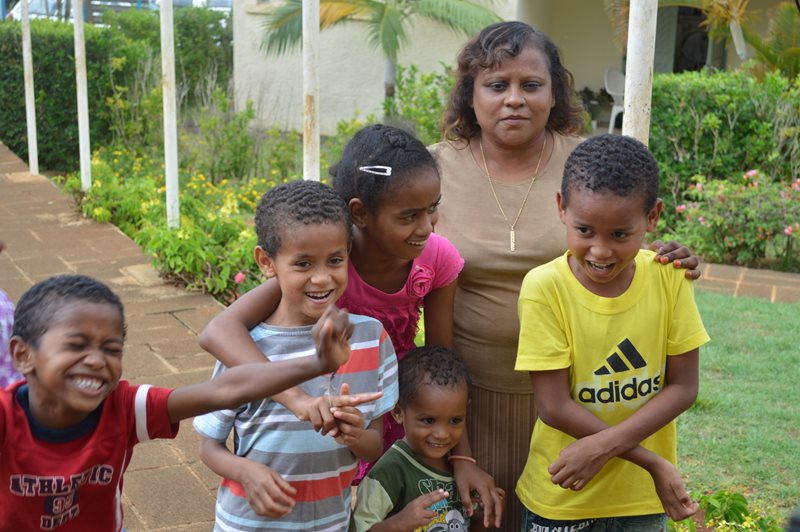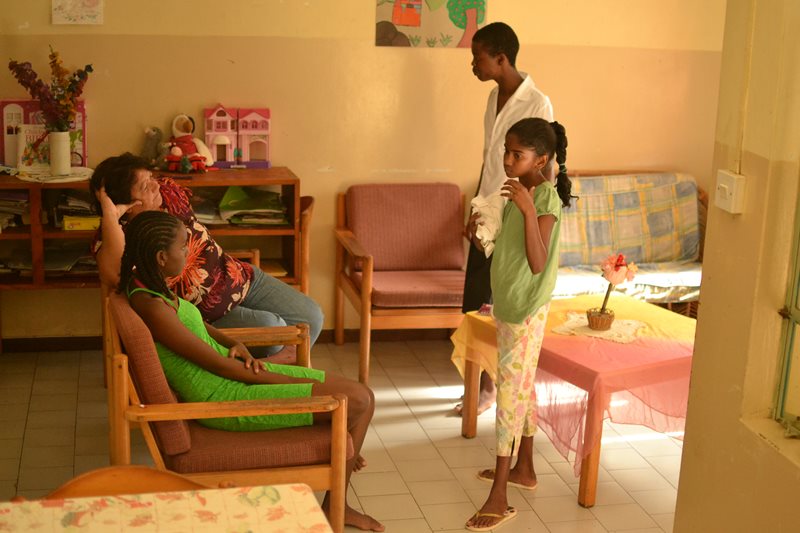Youth unemployment is a major social problem

Beau Bassin-Rose Hill is the capital of the Lower Plaines Wilhems region of Mauritius and has a population of over 100,000, making it the country’s third largest city. Living conditions have been steadily improving for the majority of the population, and primary education and health care are freely available to everyone. However, in rural areas many families continue to face a very difficult day-to-day reality.
Although only around one per cent of Mauritians live below the national poverty line of one US dollar per day, many still struggle to afford basic goods: living costs on the island are very high, as 75 per cent of all commodities, including food and petrol, are imported.
Global competition and the recent global economic crisis have led to a decline in production for export, for example in the sugar and textiles industry, which are the main source of income for most families in rural areas. They then have to fall back on farming or fishing, but the income they are able to generate this way is minimal. In addition, many families do not have enough land to provide sufficient food, and soil erosion, over-grazing, as well as droughts and cyclones pose a threat.
Unemployment rates have also been on the rise in recent years, reaching over eight per cent in 2013. Most affected are women and young people – youth unemployment is as high as 21 per cent according to some estimates. Single mothers, especially when they lack education, have a very hard time finding employment.
For children from struggling families, life bears many risks
Infrastructure is also less readily available in rural areas: for example, ten per cent of the rural population do not have improved sanitation facilities. In addition, almost 13 per cent of women in Mauritius are illiterate, and around nine per cent of men cannot read or write.
Due to its location in the Indian Ocean, Mauritius has increasingly become a transit point for drug trafficking, specifically heroin intended for trafficking into Europe. This has also led to a rise in drug abuse in the country, particularly amongst young people. Around two per cent of Mauritians are reported to be heroin abusers, which is the highest prevalence of opiate abuse in all of Africa. Abusers are also getting younger: many children start smoking, sniffing glue or drinking cough suppressants, which can quickly lead to consumption of alcohol or cannabis and other drugs.
What we do in Beau Bassin

SOS Children’s Villages began its work in Beau Bassin in 1992.
Family-based care: For children in the region who are no longer able to live with their parents, 15 SOS families can provide a loving home for up to 150 children. In each family, young children live with their brothers and sisters, affectionately cared for by their SOS mother. Once the children turn 11, government policy requires boys and girls to live in separate houses. At this point, the children move into new SOS families in the village where boys live only with other boys, and girls with other girls. They continue to be cared for by SOS mothers and to take part in joint activities.
Education: The children attend the SOS Kindergarten together with children from the neighbourhood, ensuring that they are integrated into the local community from a young age. The provision of day care also allows working parents to leave their children in safe hands while they are out making a living. Around 150 children attend the kindergarten and then go on to attend the local schools together.
Support for young adults: When young people are ready to move out of their SOS family home in order to study, receive training or find work, the SOS Youth Programme continues to support them as they make the transition into adulthood.